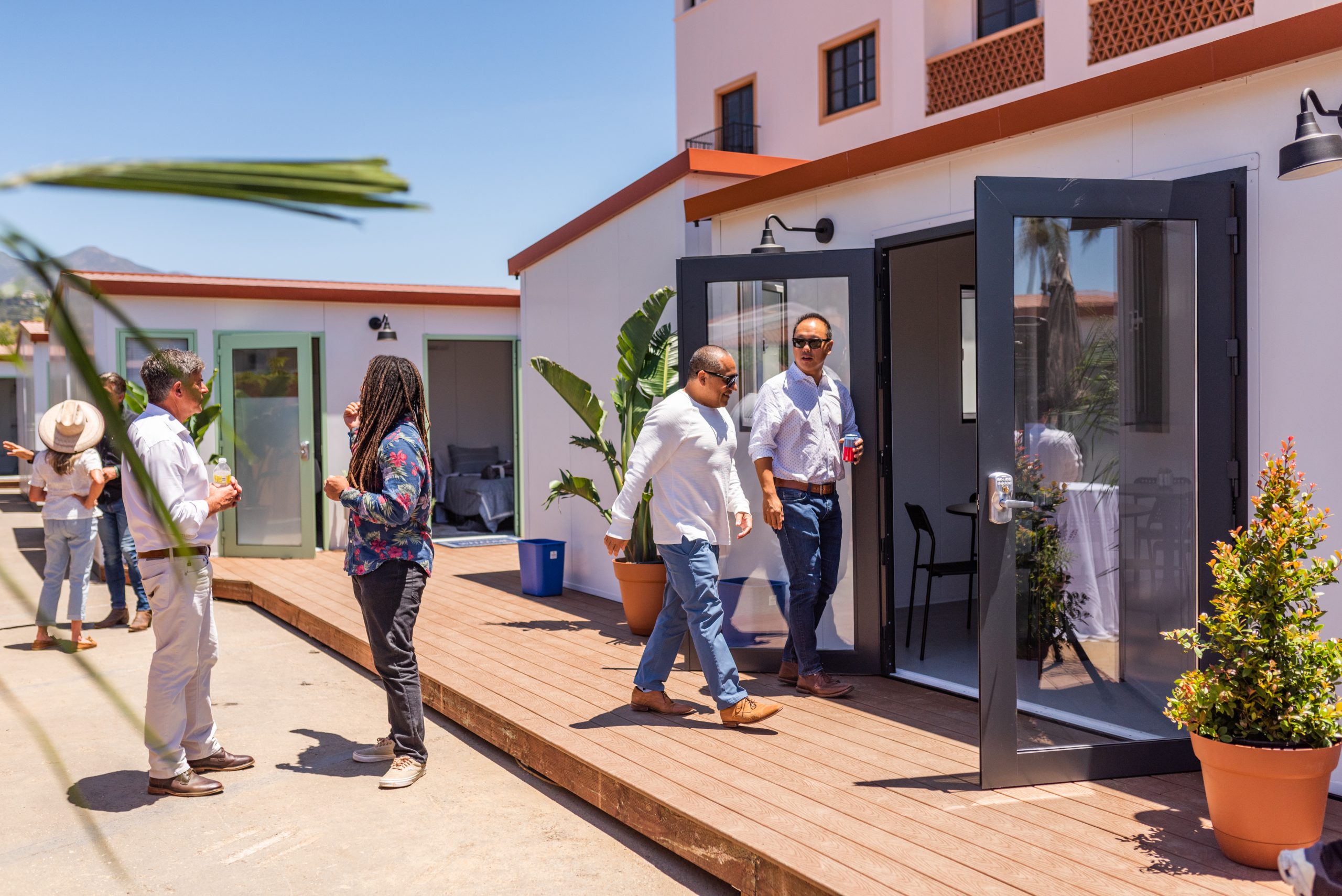While we desperately need more permanent housing, both supportive and affordable, a permanent-only focus will never succeed in bringing everyone indoors.
Did You Know ?
The average cost to build a single new unit of PSH is $650,000 in California, and as high as $1.1 million in our biggest cities, where it is needed the most.
People are worried about their safety and their belongings, and many shelters will not accept pets, nor accommodate couples.
Outreach workers report that when they offer a traditional shelter bed to people living in encampments, they are lucky if they can get 1 out of 10 people to accept. So far no one has turned down a private room at DignityMoves!
Did You Know ?
When asked why they refuse shelter, over 80% say they want their own space.
When people first lose their homes, the vast majority do not yet have a debilitating mental health or substance abuse problem.
Yet the trauma of surviving on the streets takes a significant toll. The fears, stress, and temptations create a slippery slope that is difficult to recover from. If people have a safe place where they are willing to go, their Cortisol levels can decrease and they can be in a mental and emotional state to begin thinking forward.
Did You Know ?
The average wait time for PSH in San Francisco is 14 years?
Imagine trying to find a new job without access to a shower, internet, or even a place to plug in a cell phone.
Did You Know ?
When the human brain is in “fight or flight” mode, basic survival mechanisms redirect our brains away from higher functionality.

